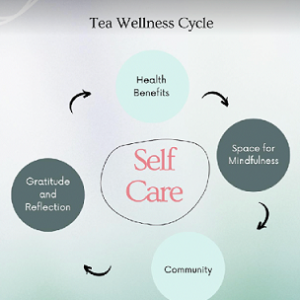Boost Your Well-Being with Organic Health Tips
In todays fast-paced society, prioritizing well-being has become increasingly essential, prompting a growing interest in organic health practices. The transition to organic diets not only enhances nutritional intake but also cultivates a deeper connection with the food we consume. By favoring organic produce, individuals can reduce their exposure to harmful chemicals and pesticides, ultimately promoting better physical and mental health. As illustrated in , the vibrant assortment of fruits surrounding a silhouette of a head accentuates the profound relationship between nutrition and cognitive function. Furthermore, incorporating organic health tips into daily routines fosters holistic well-being, emphasizing nutritions pivotal role in enhancing ones overall quality of life. By adopting these practices, individuals can embark on a transformative journey towards improved health, demonstrating that conscious dietary choices serve as a foundation for physical vitality and mental clarity.
II. The Benefits of Organic Nutrition
The promotion of organic nutrition plays a significant role in enhancing overall well-being, particularly due to its association with reduced chemical exposure and improved food quality. Organic foods, cultivated without synthetic pesticides and fertilizers, tend to yield higher nutrient concentrations, which can positively influence physical health and mental clarity. Specifically, studies indicate that organic produce may contain higher levels of antioxidants, which are vital for combating oxidative stress and reducing the risk of chronic diseases. Furthermore, embracing organic nutrition can lead to greater environmental sustainability, as methods employed in organic farming often promote biodiversity and ecological balance ((Belmain et al.)). As portrayed in the image , the vibrant array of organic fruits not only emphasizes their visual appeal but also symbolizes the cognitive benefits associated with consuming nutrient-rich foods. Therefore, incorporating organic options into one’s diet is not merely a personal choice but a holistic approach to fostering well-being and environmental stewardship ((University SJS et al.)).
III. Incorporating Organic Practices into Daily Life
Integrating organic practices into daily life is not merely an individual undertaking; it reflects a broader commitment to sustainable living that benefits both personal health and the environment. Organic farming methods, which eschew synthetic pesticides and fertilizers, provide consumers with produce that is not only free from harmful chemicals but also often richer in nutrients. This shift towards organic farming can combat urban food deserts, as evidenced by initiatives in cities like Nairobi, where agriculture is being redefined as a vital land use (Awiti et al.). Moreover, addressing the pervasive issue of food waste, which costs the U.S. economy nearly $218 billion annually, can reinforce the value of incorporating organic choices. By embracing practices such as composting and mindful shopping, individuals can reduce waste while investing in healthier options (N/A). The image of vibrant fruits juxtaposed with a brain silhouette poignantly illustrates the connection between nutritious organic eating and enhanced cognitive well-being, further emphasizing the importance of organic integration in daily routines.
IV. Conclusion
In conclusion, adopting organic health tips substantially contributes to overall well-being, emphasizing the intricate relationship between nutrition and physical and mental health. As cultivators of self-care, individuals who prioritize organic foods, such as fruits and vegetables, not only enhance their nutritional intake but also promote psychological benefits manifesting in improved mood and cognitive function. The vibrant array of fruits depicted in symbolizes this notion, illustrating the essential link between diet and mental wellness. Moreover, the future of health-focused research indicates a growing interest in understanding how dietary choices influence psychological outcomes, reinforcing the importance of informed eating decisions. Additionally, insights into organic food markets show that understanding consumer behavior, as highlighted in (Fubel et al.), can energize efforts aimed at making healthier choices more accessible. Consequently, embracing these organic health tips can lead to a more balanced and enriched life, inviting the community to thrive holistically.
References:
- Caro, David, Gomes, Paula G, Heron, Sheryl L., Huskey, et al.. “A Comprehensive Residency Wellness Curriculum”. ThinkIR: The University of Louisville\u27s Institutional Repository, 2020, https://core.ac.uk/download/289241465.pdf
- Taylor, Audrey Lynn. “Evaluation of an Elementary School Wellness Concept in Rural East Tennessee.”. Digital Commons @ East Tennessee State University, 2007, https://core.ac.uk/download/214068502.pdf
- Belmain, Steven. “Rats: an ecologically-based approach for managing a global problem”. Centre for Information on Low External Input and Sustainable Agriculture (LEISA), 2007, https://core.ac.uk/download/315779.pdf
- San Jose State University, School of Journalism and Mass Communications. “Spartan Daily, October 17, 2013”. SJSU ScholarWorks, 2011, https://core.ac.uk/download/70409233.pdf
- Bouga, Maria, Combet, Emilie, Lean, Michael E.J.. “Iodine and pregnancy – a qualitative study focusing on dietary guidance and information”. ‘MDPI AG’, 2018, https://core.ac.uk/download/153444952.pdf
- Mikkola, Minna, Roos, Gun. “Education about organic food and sustainability in Denmark, Finland, Italy and Norway: Findings from the iPOPY project”. SIFO – National Institute for Consumer Research, 2010, https://core.ac.uk/download/10929927.pdf
- Awiti, Alex. “Urban Farmers Handbook”. eCommons@AKU, 2016, https://core.ac.uk/download/84855190.pdf
- Althavale, Priyanka, Fisher, Lawrence, Gonzalez-Mendez, Enrique, Handley, et al.. “Applying the COM-B model to creation of an IT-enabled health coaching and resource linkage program for low-income Latina moms with recent gestational diabetes: the STAR MAMA program.”. eScholarship, University of California, 2015, https://core.ac.uk/download/323074056.pdf
- Bügel, Susanne, Cuoco, Eduardo, Darnhofer, Ika, Halberg, et al.. “Strategic Research Agenda for organic food and farming”. TP Organics, 2009, https://core.ac.uk/download/10929355.pdf
- Ancoli-Israel, Sonia, Chee, Michael WL, Gooley, Joshua J, Ong, et al.. “An end-to-end framework for real-time automatic sleep stage classification.”. eScholarship, University of California, 2018, https://core.ac.uk/download/323066998.pdf
- Fubel, Erik. “Drivers and prediction of organic search engine ctr: the impact of differently phrased titles”. 2023, https://core.ac.uk/download/621577688.pdf






